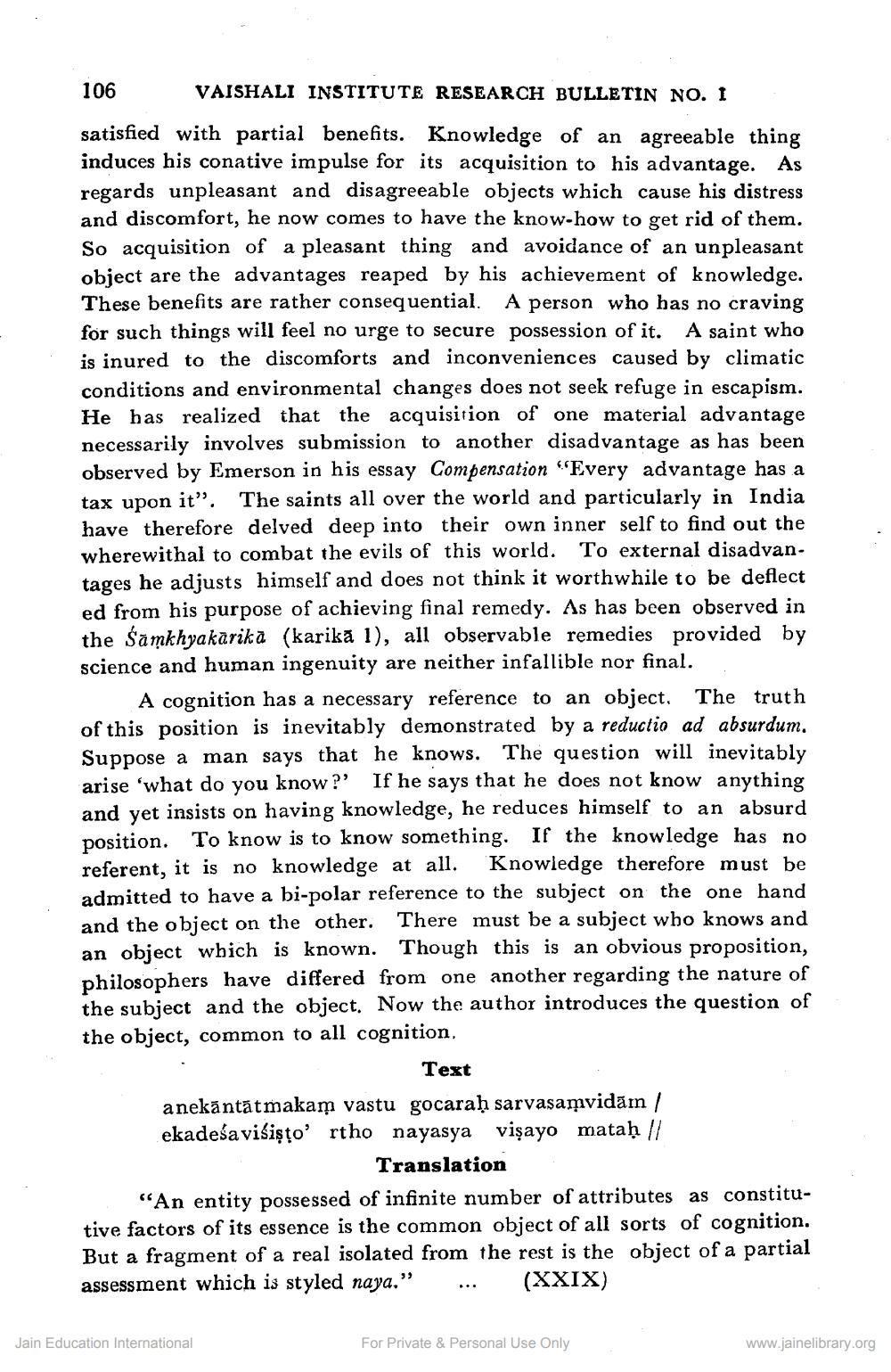________________
VAISHALI INSTITUTE RESEARCH BULLETIN NO. I
satisfied with partial benefits. Knowledge of an agreeable thing induces his conative impulse for its acquisition to his advantage. As regards unpleasant and disagreeable objects which cause his distress and discomfort, he now comes to have the know-how to get rid of them. So acquisition of a pleasant thing and avoidance of an unpleasant object are the advantages reaped by his achievement of knowledge. These benefits are rather consequential. A person who has no craving for such things will feel no urge to secure possession of it. A saint who is inured to the discomforts and inconveniences caused by climatic conditions and environmental changes does not seek refuge in escapism. He has realized that the acquisition of one material advantage necessarily involves submission to another disadvantage as has been observed by Emerson in his essay Compensation "Every advantage has a tax upon it". The saints all over the world and particularly in India have therefore delved deep into their own inner self to find out the wherewithal to combat the evils of this world. To external disadvantages he adjusts himself and does not think it worthwhile to be deflect ed from his purpose of achieving final remedy. As has been observed in the Samkhyakarikā (karikā 1), all observable remedies provided by science and human ingenuity are neither infallible nor final.
106
A cognition has a necessary reference to an object, The truth of this position is inevitably demonstrated by a reductio ad absurdum. Suppose a man says that he knows. The question will inevitably arise 'what do you know?' If he says that he does not know anything and yet insists on having knowledge, he reduces himself to an absurd position. To know is to know something. If the knowledge has no referent, it is no knowledge at all. Knowledge therefore must be admitted to have a bi-polar reference to the subject on the one hand and the object on the other. There must be a subject who knows and an object which is known. Though this is an obvious proposition, philosophers have differed from one another regarding the nature of the subject and the object. Now the author introduces the question of the object, common to all cognition.
Text
anekäntätmakam vastu gocaraḥ sarvasamvidām / ekadeśaviśisto' rtho nayasya viṣayo mataḥ //
Translation
"An entity possessed of infinite number of attributes as constitutive factors of its essence is the common object of all sorts of cognition. But a fragment of a real isolated from the rest is the object of a partial assessment which is styled naya."
(XXIX)
Jain Education International
...
For Private & Personal Use Only
www.jainelibrary.org




